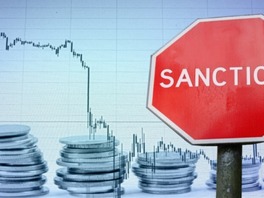The United States and Germany on Wednesday announced a deal to allow the completion of a controversial Russian gas pipeline to Europe without the imposition of further U.S. sanctions. The agreement aims to stanch fears about European dependence on Russian energy, but it was immediately assailed by critics who said it doesn't go far enough. This was reported by the Washington Post.
Under the terms of the deal, the U.S. and Germany committed to countering any Russian attempt to use the Nord Stream 2 pipeline as a political weapon. Additionally, they agreed to support Ukraine and Poland, both of which are bypassed by the project and fear Russia's intentions, by funding alternative energy and development projects.
“The United States and Germany are united in their determination to hold Russia to account for its aggression and malign activities by imposing costs via sanctions and other tools," they said in a joint statement that covered Nord Stream 2 as well as Russia's support for separatists in Ukraine.
“Should Russia attempt to use energy as a weapon or commit further aggressive acts against Ukraine, Germany will take action at the national level and press for effective measures at the European level, including sanctions, to limit Russian export capabilities to Europe in the energy sector,” it said.
"Within the framework of the agreement reached, Germany undertakes to put pressure on the EU to take measures, including sanctions, to restrict the export of Russian energy to Europe if the Russian Federation uses energy as a weapon," the publication quotes an American official.
Is is also noted that the U.S. actively consulted with Ukraine in the preparation of the agreement with Germany on Nord Stream 2, and assured that the U.S. side "did not take any action to silence Ukraine".
The agreement is not a clear political win for either President Joe Biden or German Chancellor Angela Merkel, an unabashed supporter of the pipeline who will step down later this year. For Biden, he risks appearing weak as it relates to Russia, and Merkel's governing party faces a serious challenge from Germany's Green Party, which opposes the pipeline, in September elections.
Still, the two sides committed to supporting a $1 billion fund for Ukraine to diversify its energy sources, of which Germany will provide an initial $175 million grant. And, Germany guaranteed that it would reimburse Ukraine for gas transit fees it will lose from being bypassed by Nord Stream 2 until 2024, with a possible 10-year extension.
Despite the agreement, there remains strong bipartisan opposition to the pipeline in Congress, as well as in Ukraine and Poland, and like the Trump administration before it, the Biden administration also says it opposes the pipeline. U.S. officials have said sanctions won't stop it.





